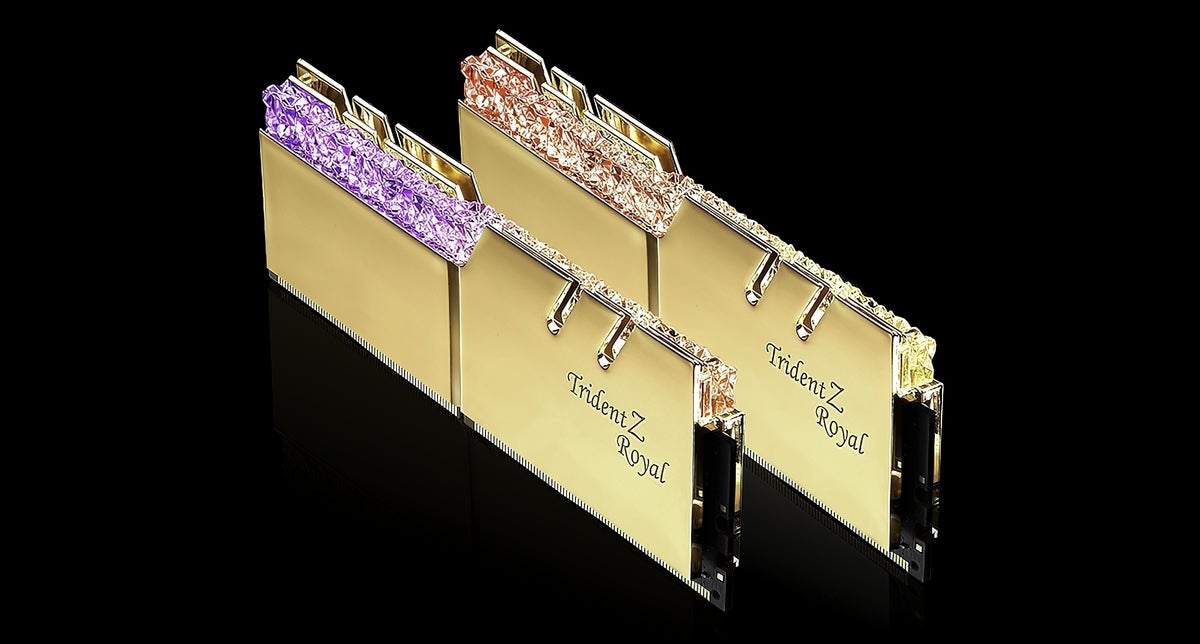Why XMP and memory overclocking are OK even if they void your warranty - crumpleryouscinfecto
Now that Intel's 11th-gen Rocket Lake CPUs have formally adopted storage overclocking on locked CPUs, including adding support for more budget-friendly motherboards, you mightiness feign the behavior carries nary risk of voiding your CPU's warranty.
Like all but assumptions, with this united you'd be wrong. Memory overclocking typically means running the memory beyond industry specs, so much as running DDR4/2933 at the speed of DDR4/3200. Even though Intel now allows non-K chips or locked chips to overclock memory happening cheaper H570 and H510 motherboards, the company still considers such behavior to be outside the warranty.
"Overclocking is non something that is peritrichous under your warranty. So if you damage a part due to extreme overclocking or something, that's not covered," an Intel official confirmed to PCWorld during the Rocket Lake press briefing. The functionary boost confirmed, "XMP is classified as overclocking, so storage overclocking would fall into that same comprehensive."
That's been Intel's official insurance for years, actually, but adding bolted CPUs opens up a broader swath of manque overclockers to the bad business organisatio. If you bargain a Corsair Vengeance DDR4/4000 kit out Oregon a G.Skill DDR4/4800 kit, for instance, you can achieve those memory modules' high information rates only by enabling the system's XMP or eXtreme Memory Visibility, which loads settings stored on the memory.
Those settings typically require profit-maximising the emf on the far side the spec'd 1.2 volts. In the Corsair kit out, you'd represent pushing it to 1.35 volts. For the even higher clock rates of the G.Skill, information technology's 1.5 volts. Because the storage controller lives inside the CPU today, that means accelerative voltage to the CPU as well, which is where the companies beat touchy about the warranty.
It's not hardly Intel, either. Asked for its administrative unit stance on exploitation XMP or its own Adenylic acid profiles on a CPU, AMD officials gave PCWorld the same answer Intel did. "AMD's product warranty does not cover damages caused by overclocking, tied when overclocking is enabled via AMD hardware and/or software package. This would include any form of memory overclocking."
 G.Skill
G.Skill G.Skill's DDR4/4800 kit requires pushing the voltage to 1.5 volts.
Get into't require, don't recite
Before you post an ALL-CAPS comment or so this on Reddit, take this: Even though these are the official stated policies of AMD and Intel, both companies often enforce a "don't inquire, Don River't tell" policy. Gamer's Nexus actually made multiple attempts to have a Central processor warranty voided aside Intel hold and establish it really difficult to consume XMP become an issue.
Memory "overclocking" tends to embody fairly safe unless you're reaching for exceedingly high clocks for that RAM–and aside association, the CPU. For the average person who runs a PC at its stock cannonball along and then flips connected XMP support to hit DDR/3200 at 1.35 volts, the risk is generally recognized to Be very low.
If the risk is indeed low, wherefore do Intel and AMD draw a line in the sand? It's likely to reduce legal liability. If Intel and AMD say a CPU will race at a certain speed, they'd have to certify that every single nick bequeath hit those speeds. That's cost-prohibitive for memory clocks few would pay for anyway.
Source: https://www.pcworld.com/article/394250/why-xmp-and-memory-overclocking-are-ok-even-if-they-void-your-warranty.html
Posted by: crumpleryouscinfecto.blogspot.com


0 Response to "Why XMP and memory overclocking are OK even if they void your warranty - crumpleryouscinfecto"
Post a Comment